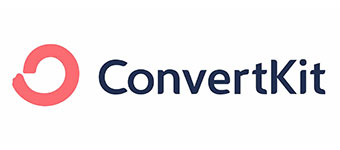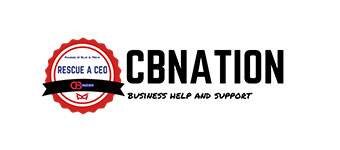Are you looking for ways to increase traffic to your website and drive leads to your business? Would you like to be a thought leader in your industry? Are you sending the same emails over and over? When you blog even once or twice a month, you can drive leads, position yourself as an expert, and share links to the blog. Before you say you hate writing, consider these powerful blogging tips that I’ve learned over the years as a freelance writer.
In this article, I share how to identify your target clients, the benefits of blogging, search engine optimization tips, and free resources for keyword research.
Why is it time to consider blogging on your business website?
Search engines like Google LOVE when we add new content to our websites. Blogging is an effective and affordable way to add pages, answer the most asked questions about your business and industry, and drive visits to your website. If you’re writing content geared toward your target market, which you should be, then the visits will (hopefully) be from potential clients.
Start by Identifying Your Target Client
As a business owner, you likely have a target client(s) in mind but if you don’t or you’re changing offerings, then let’s talk about how to identify your target market.
What NOT to do: DO NOT say everyone is your target client.
When I started networking, there was a woman representing a beauty products company who said her target client was anyone with skin. While I understand that she was saying she had products for men, women, and teenagers, what she really needed was to be more specific.
She could say, “If you’re concerned about fine lines and wrinkles, I would love to share my product with you.”
If you’re going to networking meetings saying that you work with everyone, please stop.
Think about who your favorite clients have been. Was there something you loved about collaborating with them? Are there industries and people that are especially interesting to you? What services or products are you offering? My friend Melissa Taylor of Network Build Grow offers the idea that niches may not work for all of us. Instead, she suggests segmenting per your expertise.
When segmenting, you focus on what you offer rather than specifying who you serve. Your market differentiator is in how you deliver the service or product rather than the characteristics of who you serve. I like this idea and it is how I’ve done business. I want to work with people who I like to deliver content that connects their business to their target (or segmented) audience.
One of my first clients was a man with whom I was easily able to work collaboratively. We’d email and share ideas for future posts. He’d give specific feedback about my writing and even share a joke with me occasionally. For me, having a good working relationship with clients is important. I am not writing for just anyone and you shouldn’t either.
By identifying a target client, you’re able to say YES to people who meet specific criteria, say YES to those who don’t match as well but that you choose to work with, and say NO to the ones who aren’t a good fit.
You’re free to choose your clients.
Now we can focus our content on these segments instead of writing about everything for everyone. Google loves it when our website has focused, relevant content, so this will support your goal of increasing visits to your website AND the visits will (hopefully) be from people with whom you’d like to work. You don’t need a lot of visits; you need the right people to visit your website.
Blogging is an effective way to build the online presence of your business.
Before you say you hate writing, consider these powerful blogging tips and statistics.
- Blogging is an affordable way to update your website, which Google loves, provide relevant content to your target audience, and position yourself as a leader in your industry.
- Companies with blogs produce an average of 67% more leads monthly than companies that don’t blog.
- Marketers who prioritized blogging received 13X more ROI than companies that did not in 2019.
Statistics from Hubspot, an industry leader in content creation.
Powerful Blogging Tips for Businesses
You don’t want to put good content on a poorly performing website. That’s one of the most powerful blogging tips I can offer you.
Website Maintenance
Consider the health of your website. Google measures site performance as part of search engine rankings. If you’re not regularly maintaining the site, it will eventually stop working.
- When was the last time your website was backed up?
- Are the elements of the site updated? On WordPress, we call these Plug-Ins.
- When was the last time the website design was updated?
- Does each page have Metatags and a Meta Description? If you’re not sure, check out Hammersmith Support’s article Absolutely Everything You Need to Know About SEO. It’s an easy-to-understand guide to all things search engine optimization.
They are the folks who manage the backend of my website. All I do is add content to the blog and they could do that for me too; it’s part of their maintenance program.
If your website is an outdated format, Google won’t be able to read it. That means you can put relevant content on the blog, but it won’t get as noticed by Google as a website that is updated and performing well.
Ownership of Content
If you’re relying solely on social media for marketing, you could end up without a business. While you may be posting on social media, you don’t own the content or your profile. At any time the social media platform could remove your profile or the entire platform could go away.
You own the content on your website and blog.
If you’re solely relying on social media for lead generation, you’re missing other opportunities to drive traffic to your website, generate, and convert leads.
Keyword-focused content on all the pages and consistent blogging on relevant topics will drive that traffic. Keep in mind it’s a marathon and not a sprint and it starts with a well-designed website.
Relevant Content
Blogging piggybacks on the content that is on the main pages of the website. When you have a page for a certain service, you can create related content for the blog. Where you have a contact us page, you can link that page in a call to action. Your website should have a clear call to action. For nonprofits, the call to action is probably a Donate button. For businesses, it may be an opt-in to an email, schedule a consultation, or enter your email for a free resource.
By providing this type of content, you’re positioning yourself as the expert in your field.
You stand out above others.
Lastly, and perhaps most importantly related to the power of blogging is that Google loves it when we add pages to our websites. Our site shows up higher in search engine results. There is more traffic to the site and with a clearly defined call to action, visitors, when ready, will enter their email, schedule a call, and read the content you’ve provided.
Powerful Blogging Tips: Where to Begin
If you’re having writer’s block, think about the most asked questions about your business.
- What inspired you to start your business?
- What problem do you solve for your customers or clients?
- What is an email you send over and over and would rather send a link?
- Have you hired new people to your team?
- Are you expanding services or product offerings?
- What should clients expect at their first appointment with you?
Begin creating content with these ideas. Keep track of topics that come to mind as you are in meetings and write them down. Those become fodder for your blog. Keep the articles on topics related to your business and write about them.
The power is in website optimization as well as content that is optimized for search engines.
What is Search Engine Optimization?
Search Engine Optimization (SEO) is the process of optimizing website structure and content in order to rank higher in search engine results and to drive traffic to the website.
- On-page SEO refers to page structure, backend coding, page titles and descriptions, internal links, alt text and image descriptions, metadata, and blogs.
- Off-page SEO refers to building relationships with other websites through backlinks, directories, speaking engagements with website links back to your site, social media, and guest blogging.
My SEO niche is in understanding keyword research, using keywords in content, interlinking content, and adding links to outside sources. You will notice in this article I’ve linked to the NBG homepage, my website, my website partner’s website, and outside resources. Those are all good practices for search engine optimization.
FREE SEO and Keyword Resources to Power Your Blogging
- Ubersuggest
- Keywords Everywhere
- SEMRush
- Ahrefs
- Others Want to Know (Google search and scroll you will see this section)
- Thought Leader websites Hubspot, MOZ, Badass Web Goddess
Researching keywords and implementing them on website pages and blog posts will signal what your website is about and drive visitors from your target market.
Be specific about your target market by creating content with them in mind. Think about the topics you’d like to cover, the pillars of content, and create a list of ideas. I use an Excel spreadsheet and map each week, month, and quarter. In this way, social media content can also be about the same topics as the blog.
You don’t need a lot of visitors to your website. You need the right ones.
Having an updated and well-maintained website and producing keyword-based content that speaks to your audience are the most powerful blogging tips I can offer you.
If you still hate writing, I’d love to talk to you! Together we can get ideas from your head and onto your website. Email me at [email protected].















